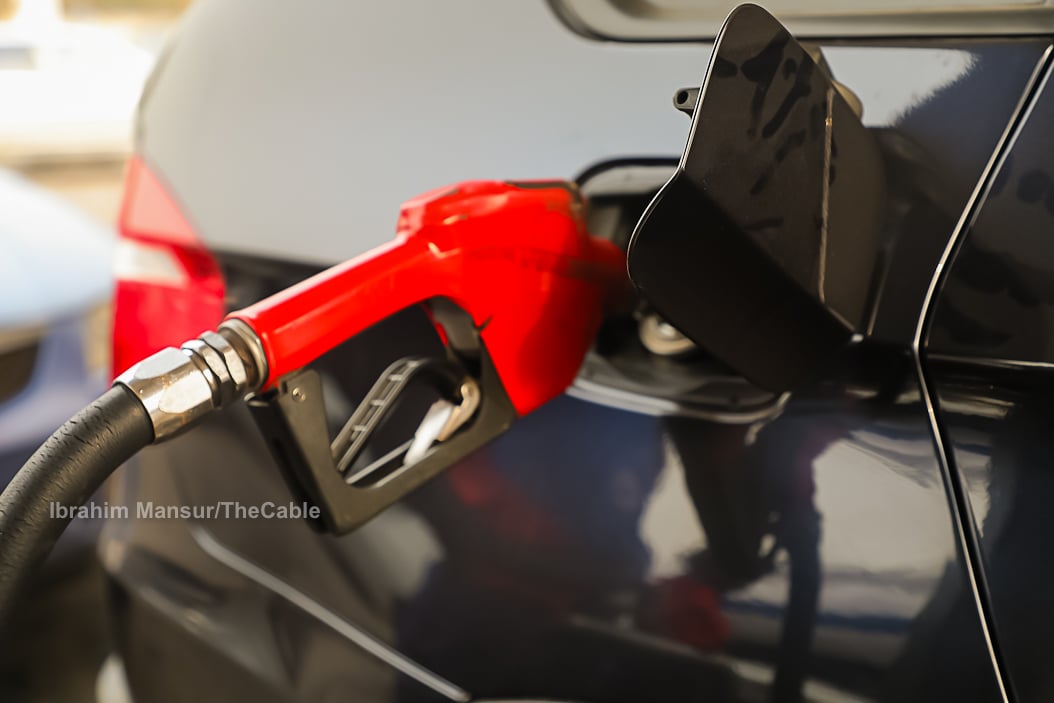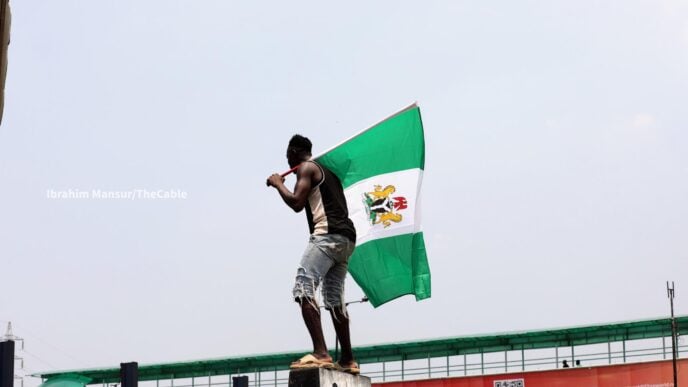On May 29, 2023, President Bola Tinubu stood before the Nigerian people and declared with solemn conviction, “Fuel subsidy is gone!” This unexpected declaration fulfilled a campaign promise made by nearly all major presidential candidates but one, yet it unleashed what economists have called the most severe socio-economic shock in Nigeria’s contemporary history. What was promised as a pathway to economic liberation and infrastructural turnaround has instead become a crucible of suffering for millions of ordinary Nigerians who now find themselves trapped between vanished subsidies and an emerging regime of punitive taxation that threatens to extinguish what remains of their economic vitality and human dignity.
When Nigerians were promised an Eldorado in exchange for the removal of fuel subsidy, it was painted in gold: better roads, uninterrupted power supply, efficient refineries, thriving industries, and food security. Instead, what the people received was a relentless “punch in the face”—spiralling inflation, collapsing purchasing power, and a sense of suffocation that makes daily survival feel like a gamble.
President Bola Ahmed Tinubu’s first act in office was to keep his campaign promise: “Subsidy is gone.” For him, it was an act of courage, but for the masses, it became a cause of hunger and despair. The people adjusted grudgingly, hoping that the pain would be temporary. But rather than relief, what followed was a floodgate of taxes—levies upon levies—until the camel’s back now groans beneath a burden too heavy to bear.
The latest insult is the proposed 5% petroleum tax, set to take effect in January 2026. A nation already choking under the weight of VAT, PAYE, stamp duties (in addition to the “normal” scientific pilfering of customers’ funds by banks), customs duties, telecom taxes, and electricity tariff hikes is now being asked to part with another slice of its meagre bread. This is not governance; it is a slow, clinical strangulation of the very people a government is sworn to protect.
Advertisement
The recent proposal of a 5% petroleum tax, set to take effect in January 2026, represents not merely another economic policy but the final betrayal of a social contract that has held Nigeria together through decades of difficulty. How did Nigeria arrive at this precipice, and why does the current trajectory risk provoking historical consequences that no government can safely ignore? Let’s take a look:
The Grand Promise: Origins of Nigeria’s Fuel Subsidy Debate
Fuel subsidy had long been a third rail of Nigerian politics—a policy so deeply entrenched that despite its acknowledged inefficiencies, successive governments have approached it with extreme caution. The rationale for subsidy was simple: keeping fuel affordable for millions of Nigerians who struggled with persistent poverty and economic instability. Introduced in the 1970s, the subsidy ensured that, being Africa’s largest oil producer, Nigerians could access petroleum products at below-market rates. There is that “notion” that Nigerians have no business buying fuel at the same rate as people in those countries that are not so blessed with petroleum deposits in their land.
Advertisement
The system operated through a complex mechanism whereby the government paid importers the difference between the landing cost of refined petroleum products and the official pump price. By 2023, this system had become increasingly unsustainable, consuming $100 billion in 2022 alone—more than the combined budgets for education and healthcare. The World Bank aptly characterized it as a “ticking fiscal time bomb” that diverted resources from critical public investments. There were allegations of how some rent-seeking elements around the ruling elite claimed subsidy payments for fuel they never imported. In a way that triggered reasonable suspicions, our national consumption suddenly tripled as a result of the inflation by lackeys of the political elite and some economic saboteurs who find it lucrative, smuggling subsidised products out of the country into neighbouring countries.
All presidential candidates across the spectrum, therefore, recognized this reality during the 2023 campaign season. They (all the presidential candidates, but one—Prince Adewole Adebayo of the Social Democratic Party (SDP)–promised to remove it. They painted a picture that its removal would usher in an economic Eldorado—with savings redirected to infrastructure, education, healthcare, and job creation. What they failed to adequately articulate was the transitional pain that would accompany this policy shift or the subsequent tax burdens that would be introduced as a form of further punishment for Nigerians.
The Economic Anguish: Life After Subsidy Removal
The immediate aftermath of President Tinubu’s announcement was economic chaos. Overnight, fuel prices skyrocketed by over 200%—from approximately 185 naira (about $0.40) per liter to between 500 and 700 naira (about $1.16-$1.62) per liter, with some stations charging nearly 1,000 naira. This price surge rippled across the economy, triggering
Advertisement
– Transportation cost increases of 300-400%, dramatically raising the cost of commuting and goods transportation.
– Double-digit inflation that reached 34.6% by 2024, with food inflation approaching 40%.
– Sharp declines in real wages as salaries failed to keep pace with rising costs.
– Heightened poverty levels as disposable incomes evaporated
The World Bank had warned that Nigeria’s fragile economic foundation—characterized by low revenue mobilization, high debt levels, and dependence on oil exports—made the country particularly vulnerable to such shocks. Unfortunately, these predictions proved accurate. By 2024, economic growth remained stagnant at 3.1%, below the sub-Saharan African average of 4%, while consumption—which accounts for 76.3% of GDP—contracted significantly as household purchasing power diminished. Apart from the President himself, there are only 36 people in Nigeria who could feel the impact of subsidy removal and its consequent abundance. They are the 36 state governors who now receive three times more from FAAC’s monthly allocation than they were getting before the era of zero subsidy. They have come out to give testimonies to that effect. But to an average Nigerian, what we can see are press statements and gross misapplication of funds on “white elephant” projects across the 36 state capitals. Constructing flyover bridges needlessly in areas where only a roundabout would do. Some are busy creating unnecessary expenditure handles, like putting clerics on payroll, while the take-home pay of civil servants fails to take them home, despite the so-called new minimum wage, with the consequential adjustments.
The Taxation Trap: Adding Insult to Injury
Rather than alleviating this pain, the government has responded with a series of revenue-seeking measures that further burden already struggling Nigerians. Every government agency, including those whose statutory mandates are primarily not revenue-generating, is aggressively trying to squeeze blood out of the bones of the Nigerian people. Those in uniform have gone berserk, thus making a mess of the government’s “Ease of Doing Business” policy initiatives. The introduction of multiple new taxes—including the latest proposal for a 5% petroleum tax—suggests either a profound disconnect from public suffering or a deliberate choice to prioritize fiscal targets over human dignity.
Advertisement
This petroleum tax represents a particularly cruel economic irony: having removed a subsidy that made fuel hitherto more affordable, the government now proposes to add a new tax on the same essential commodity that has become prohibitively expensive for many. This tax will inevitably:
– Further increase fuel prices, triggering another round of inflationary pressure.
– Depress consumer spending and business investment.
– Disproportionately harm low-income households who spend larger portions of their income on transportation and energy.
– Undermine economic recovery by reducing disposable income. The justification offered, that these measures are necessary to strengthen government finances, rings hollow to citizens who see little evidence of improved service delivery or accountable governance corresponding with increased taxation.
The Petroleum Tax: Anatomy of an Ill-Conceived Policy
Advertisement
The proposed 5% petroleum tax, scheduled for implementation in January 2026, comes at perhaps the worst possible moment for the Nigerian economy and its people. Consider the context:
– Inflation remains stubbornly high at 34.6% (2024), with food prices soaring
– The naira has depreciated over 100% against the dollar, increasing import costs
– Unemployment and underemployment remain at crisis levels
– Household savings have plummeted to a historic low of 4.8%
Advertisement
In this environment, adding any additional tax burden—let alone one on an essential commodity like petroleum—threatens to push millions over the edge into absolute destitution. The mathematics is brutal: a household spending 30% of its income on transportation and energy would see an effective reduction in disposable income of 1.5%—a devastating cut when real incomes have already been maimed by inflation.
The government’s argument that this tax will help fund infrastructure rings hollow in a country where corruption and mismanagement have historically diverted resources away from public goods. Nigerians rightly ask, why should we pay more when we see so little return on previous payments? Why must we be starved to sustain the insensitively opulent lifestyle of the ruling elite? Why must we suffer dysentery for the excessive consumption of sugar by the political elite? Why can’t the sacrifice start from the top?
Advertisement
Historical Precedents: When Taxation Sparks Revolution
The reference to King Louis XVI of France is not merely rhetorical flourish but a sobering historical parallel that today’s Nigerian leadership would do well to contemplate. Pre-revolutionary France was characterized by:
– Regressive taxation that burdened the common people while exempting the elite
– Rising food and energy costs that consumed increasing portions of household income
– A widening gap between governing classes and the governed
– Fiscal crises addressed through additional burdens on those least able to bear them
These conditions produced a volatile social mixture that eventually ignited the revolution. Nigeria today displays alarming similarities. What is happening in Nepal right now, starting from the early hours of Monday, is not something either the Prime Minister, KP Dharma Oli, or the President, Ramchandra Paudel, bargained for. What started as a peaceful protest has now snowballed into multiple resignations of political officeholders, especially members of the country’s cabinet. The building of the national parliament is set ablaze, while members of the political class are running for their dear lives.
History does not repeat itself perfectly, but it echoes with undeniable resonance. The warning for Nigerian leadership is clear: when people perceive that their government serves itself rather than the public good, when economic survival becomes a daily struggle, and when new burdens are added without consent or compensation, social stability becomes increasingly fragile.
The Path Forward: Alternatives to Austerity
The latest report says the government does not have an intention of implementing it now or in the near future. That is a good step in the right direction. Rather than imposing additional taxes, the Nigerian government should consider alternative approaches to economic recovery that would not inflict further harm on ordinary citizens:
1. Comprehensive anti-corruption measures to recover the billions lost to graft annually
2. Streamlined government with reduced operational expenses and smaller cabinets
3. Targeted support programs for the most vulnerable households, funded by subsidy savings
4. Investment in refining capacity to reduce dependence on imported petroleum products
5. Economic diversification to reduce reliance on oil revenues!
The ongoing operation of the Dangote Refinery—Africa’s largest, with a capacity of 650,000 barrels per day—offers hope for reducing import dependence and stabilizing fuel prices in the medium term. Rather than adding new taxes, the government should focus on creating an enabling environment for such investments to flourish.
On a final note, the proposed 5% petroleum tax represents more than a policy misstep—it symbolizes a fundamental breakdown in the relationship between Nigeria’s government and its people. The former had lost touch with the daily realities of the latter. The subsidy removal, executed without adequate safeguards or transition plans, has already pushed millions to the brink. Adding another layer of tax burden is not just economically unwise; it is also politically dangerous and socially unjust.
Governance is not about squeezing blood from stones. It is about justice, equity, and ensuring that the burdens of nationhood are shared fairly. Nigerians are tired of paying for the greed and wastefulness of their leaders.
Former British Prime Minister Winston Churchill did not have this Tinubu administration in mind when he said, “Any nation that intends to tax itself to prosperity is like a man standing inside a basket and intending to lift himself using the same basket.”
You can’t tax people who are not made to be economically productive by your economic policies. You tax productivity, not the people. The ability of the people to adjust to these excruciating fiscal policies of the administration is not absolutely elastic. Therefore, push them further, and this administration may discover that hunger is a more potent weapon than bullets.
President Tinubu must, therefore, reconsider this approach or risk confronting the same historical forces that have toppled governments throughout history when they lost touch with their people’s suffering. The warning signs are clear: soaring inflation, eroded purchasing power, and growing popular despair. The government has a narrow window to change course—to listen to its people, to prioritize their welfare, and to demonstrate that governance remains a contract between the ruled and the rulers. I was glad to read, on the platform of Channels TV, that “Finance Minister Wale Edun has clarified that there are no immediate plans to implement the proposed 5 percent tax on petroleum products.” This should be seen not as a matter that needs to be temporarily suspended, only to be reintroduced when the people seem to have forgotten.
The alternative does not bear contemplation but must be stated plainly: when governments cease to serve their people, when economic survival becomes impossible, and when peaceful protest yields no response, societies eventually find other means of expressing their will. Nepal is a contemporary example. Nigeria stands at this precipice today. The choice between relief and revolution rests squarely with its leadership.
Abubakar writes from Ilorin, Kwara State. He can be reached via 08051388285 or [email protected].
Views expressed by contributors are strictly personal and not of TheCable.













